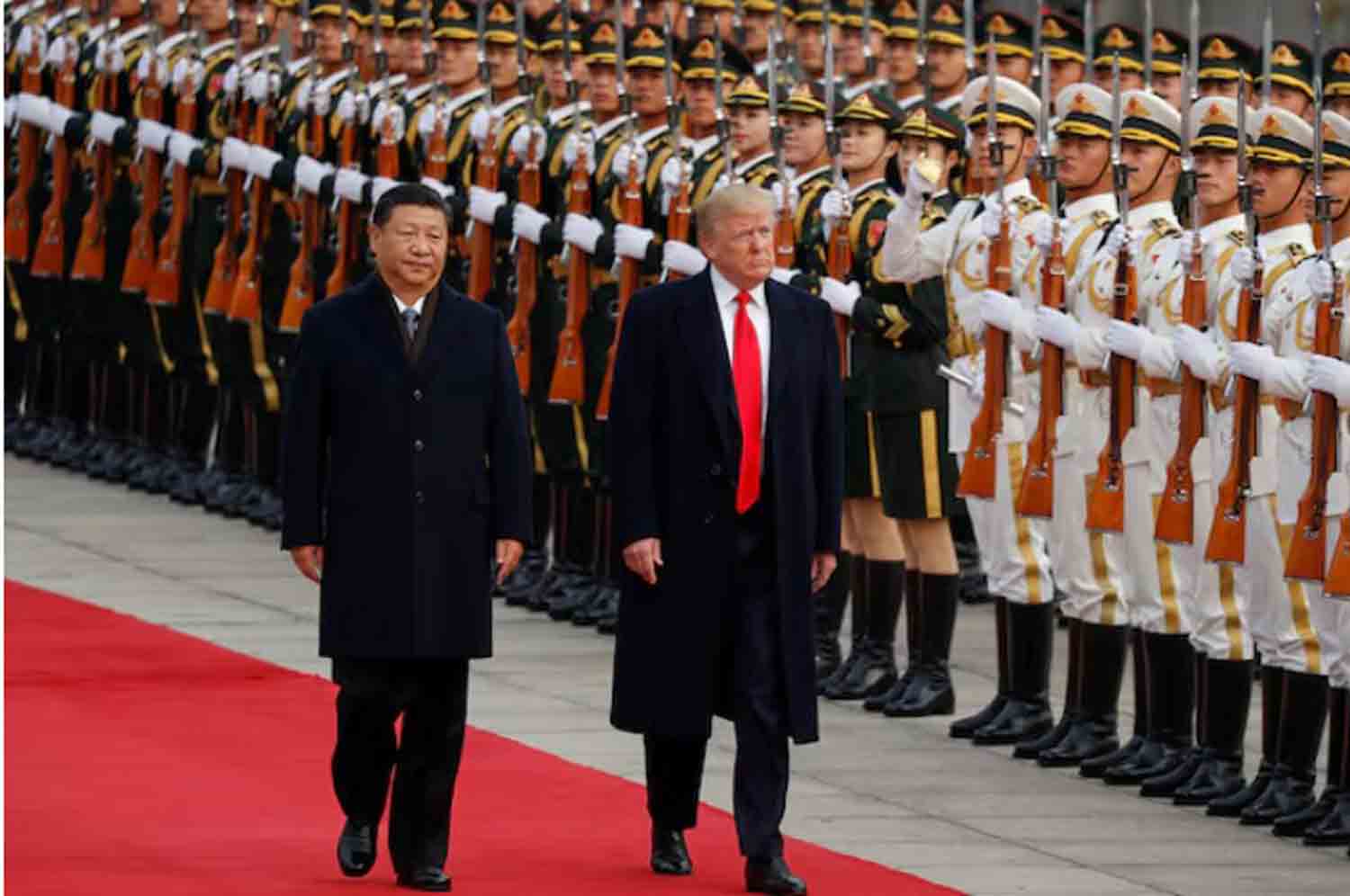As Donald Trump intensifies his tariff threats against China, analysts suggest that Beijing is proactively implementing its own restrictions to engage the next U.S. president in negotiations before a potential trade war escalates. Drawing from the experiences of the previous trade conflict during Trump’s first term, China aims to gather leverage for discussions with the incoming U.S. administration on contentious issues related to trade, investment, and technology. Additionally, there are concerns regarding the detrimental impact of further tariffs on China’s already vulnerable economy.
This week, China initiated an investigation into U.S. semiconductor leader Nvidia, citing alleged antitrust violations, following its recent ban on exports of rare minerals to the U.S. “This should be viewed as an initial offer in what is likely to evolve into negotiations with the U.S., rather than merely imposing tariffs and concluding the matter,” stated Fred Neumann, Chief Asia Economist at HSBC.
According to George Magnus, a research associate at Oxford University’s China Centre, China is now better equipped to handle most tariffs, except for an extreme scenario involving a 60% tariff on all Chinese goods. The second-largest economy in the world has gained a significant foothold in industries such as electric vehicles and green energy, reducing its reliance on Boeing aircraft and large gasoline-powered vehicles that it previously purchased in 2017, as it has found alternatives like Airbus planes and its own Comac C919.
China is not self-sufficient by any means. Analysts suggest that a new trade conflict with the largest economy in the world would disproportionately impact China, as the U.S. could impose even higher tariffs on Chinese imports and further disrupt its supply chains.
China continues to rely on imports of critical materials from the United States, including advanced microchips and other high-tech equipment, while also depending on American consumers to purchase its products amid a bleak global trade environment and sluggish domestic demand.
Beijing is eager to engage with Trump before he implements additional restrictions on U.S. high-tech exports and to ensure the renewal of the U.S.-China Science and Technology Agreement, according to Alicia Garcia-Herrero, chief economist for the Asia Pacific at Natixis.
This agreement, which facilitates scientific cooperation between the two nations, expired in August, and it is unlikely that negotiations for its renewal will conclude before Trump’s inauguration on January 20.
Although Huawei has made significant investments in its chip manufacturing capabilities, their commercial success remains uncertain, prompting Chinese negotiators to seek discussions with their U.S. counterparts to secure a reliable supply of American-made chips.
China has new incentives to offer
In the past, Beijing took two years to agree to purchase an additional $200 billion in U.S. goods and services as part of the “Phase One” agreement that concluded the initial trade war.
This time, China has new incentives to offer, such as increasing its imports of oil and liquefied natural gas, as the U.S. is currently producing more than it can consume.
Trump asserted during his campaign, “Drill baby, drill,” indicating that he will require support for demand, according to Bo Zhengyuan, a partner at the consultancy Plenum based in Shanghai. With the growing limitations on chip exports, Bo noted that agricultural products, commodities, and energy remain among the few items the U.S. can still export to China.
In response to inquiries, China’s commerce ministry expressed its willingness to engage and communicate with the economic and trade teams of the Trump administration. However, Beijing possesses leverage over Washington, particularly if the U.S. perceives that China’s inability to fulfill previous purchase commitments could lead to greater benefits from tariffs than from negotiations.
Michael Hart, president of the American Chamber of Commerce in China, highlighted that U.S. companies are already experiencing pressure. “There is significant concern among U.S. and other foreign companies regarding their access to this market,” Hart stated. “Are we still able to sell in China? Is there a complete ban on our operations?”
According to a September survey conducted by the American Chamber’s Shanghai chapter, business sentiment among U.S. firms in China has reached its lowest point since 1999. Additionally, non-economic factors are influencing the situation. Trump has committed to imposing an additional 10% tariff on Chinese goods to compel Beijing to take stronger action against fentanyl trafficking into the U.S.
“Employing political justifications for trade restrictions ultimately exacerbates tensions,” remarked Neumann from HSBC. The proposed fentanyl tariffs also reflect China’s own import restrictions on trading partners that offend Beijing over matters such as human rights, Taiwan, and the South China Sea.
“It’s akin to adopting a strategy from China’s playbook of coercion,” Magnus commented. “They would likely perceive it as a significant affront.”
Discover more from Defence Talks | Defense News Hub, Military Updates, Security Insights
Subscribe to get the latest posts sent to your email.





